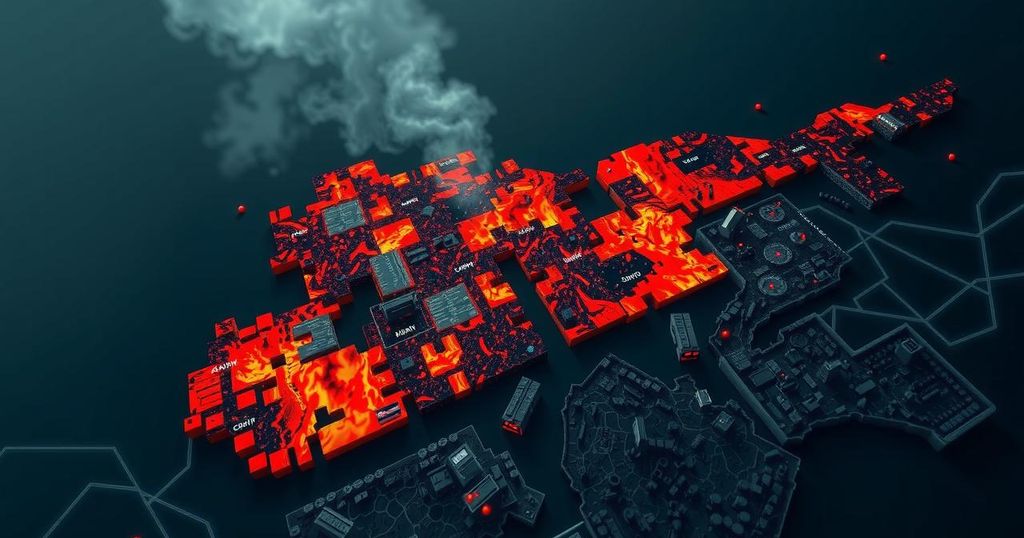Significance of Syria’s Recent Rebel Victory in Aleppo
The reclaimed control of Aleppo by opposition forces signals a shift in the Syrian conflict, indicating a possible decline in Iranian influence and an increase in violence. The internal political situation in Damascus remains fragile, and the regional implications of this development could provoke potential changes in Turkey’s approach, as well as the involvement of Russia, Israel, and the U.S. in the ongoing strife.
The recent rebel offensive that reclaimed Aleppo signifies a pivotal shift in the Syrian conflict, presenting a potential decline in Iran’s influence while igniting a new wave of violence. Nearly eight years after opposition fighters lost control of Aleppo, the uprising, primarily led by Ha’yat Tahrir al-Sham (HTS), has shown that the regime of President Bashar al-Assad may be losing its grip on power.
The fall of Aleppo raises uncertainties about the dynamics within Damascus, particularly the internal conflicts among various military factions and reports regarding the actions of Assad and his family. Though the armed opposition, which includes a mix of extremist groups, Turkey-backed fighters, and Kurds, has regained territory around Aleppo and Hama, the situation remains fluid and unstable. The rebels’ ability to maintain control will largely depend on the responses from the Assad regime, Hezbollah, and Russian forces, which have been engaged in the ongoing Ukrainian conflict and may not possess the same resources as in previous years.
Iran is deeply invested in supporting Assad against these rebel advancements, but the recent developments complicate Tehran’s strategic position in the region, as the threat to the Assad regime intensifies. Conversely, Turkey’s stance has evolved, possibly reflecting an interest in reshaping post-Assad governance in Syria and mitigating the Kurdish influence. Furthermore, Israel views the situation as a potential opportunity to disrupt the Iran-Hezbollah connection, though the uncertain outcome poses challenges for its security. Meanwhile, the United States maintains a military presence in Syria to counteract Islamic State threats, though the political landscape’s evolution may influence future decisions regarding troop deployment. Thus, the intensification of the Syrian civil war may have wide-ranging repercussions for regional dynamics and international influences going forward.
The Syrian civil war has been ongoing since 2011, characterized by a complex interplay of domestic uprisings and external interventions. The conflict escalated significantly when opposition forces attempted to overthrow President Bashar al-Assad, leading to widespread violence and implications for regional stability. Over time, the involvement of foreign powers, including Russia and Iran, has exacerbated the conflict, complicating any potential resolution. Recent events, such as the rebel offensive in Aleppo, have indicated that power dynamics may be shifting once again, prompting analysis of its implications for all stakeholders involved in the region.
In summary, the renewed conflict in Syria, highlighted by the rebel takeover of Aleppo, raises significant concerns about the stability of the Assad regime, the future role of regional actors like Iran and Turkey, and the interests of global powers such as Russia and the United States. The potential resurgence of the opposition signifies a critical juncture that could reshape alliances and influence the trajectory of the Syrian civil war moving forward.
Original Source: www.cfr.org








Post Comment